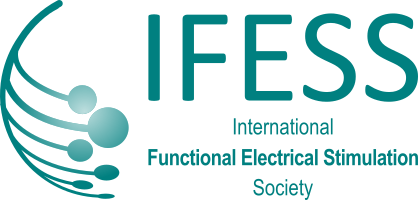Differences and commonalities of electrical stimulation paradigms after central paralysis and amputation.
Presenters: Prof. Dr.-Ing Thomas Stieglitz, Prof. Dr. Natalie Mrachacz-Kersting, Dr. Ines Bersch-Porada, Dr. Cristian Pasluosta
University of Freiburg, Freiburg im Breisgau, Germany.
Workshop description: Patients with spinal cord injuries (SCI) or with severe brain stroke suffer from life lasting functional and sensory impairments. Other traumatic injuries such as limb loss after an accident or disease also affects motor function, sensory feedback and the quality of life in those individuals. Invasive and non-invasive functional electrical stimulation (FES) is a well-established method to partially restore function and sensory feedback of paralyzed and phantom limbs. It is also a supporting technology for the rehabilitation of the neuromuscular system (e.g., training residual function and re-innervated muscles), and for complimenting assistive devices.

In this workshop, we will discuss the pros and cons of FES as a technology for restoring function and in supporting rehabilitation therapy and assistive devices. We will also discuss and demonstrate how clinical and research protocols developed for patients with SCI and brain injuries can be translated to the treatment of patients with an amputation, and vice versa. We further elaborate on how identified motor learning strategies, using quantitative electrophysiological and kinematic measurements, may help caregivers in the rehabilitation process.
The workshop addresses the transfer of knowledge and best practice between engineering, movement sciences, neuroscience and physiotherapy in an interprofessional acting team. Oral presentations introduce state-of-the-art knowledge and present best practice examples from clinical studies. A speed meeting experience with experts following the presentations will allow for interaction with the presenters and amongst participants of the workshop.

